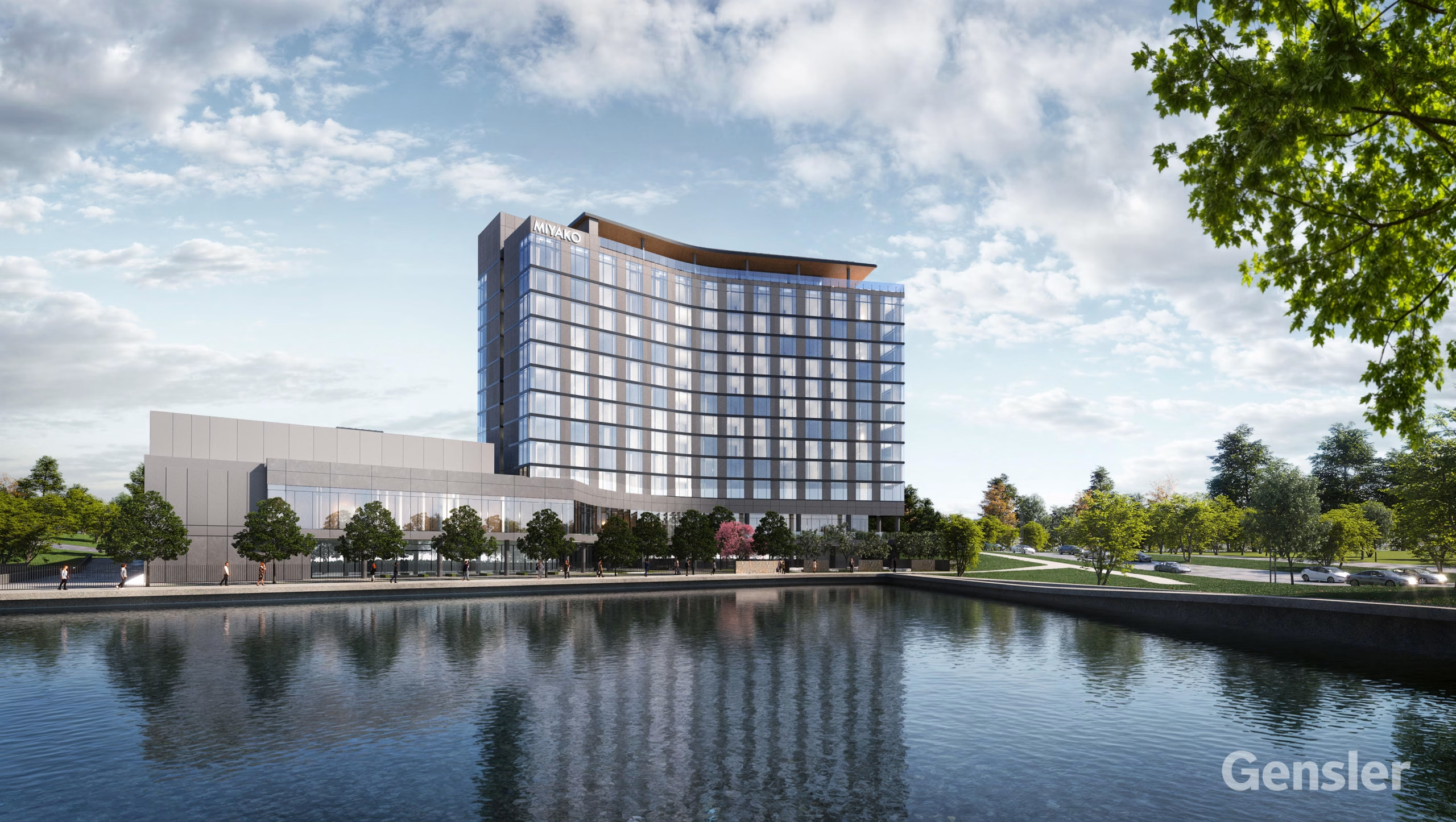The Beck Group has commenced construction on the forthcoming Miyako Hybrid Hotel Plano, the inaugural Texas location of the Japanese hospitality brand. Developed by Kintetsu Group Holdings Co., Ltd. under their Miyako Hotels & Resorts banner, the 12-story, 217-room boutique hotel is scheduled to open in Autumn 2027. The project will bring Japanese refined service and design sensibility to North Texas, while capitalising on Plano’s rapid corporate growth and vibrant business & entertainment district.
Strategically placed within The Park at Legacy, the hotel sits amid major corporate campuses including Toyota Motor North America and more than 40 Japanese-owned companies. Furthermore, the ground-breaking ceremony drew senior Japanese executives, local civic officials and industry stakeholders, underscoring the project’s international and economic significance.
Project Factsheet
Project: Miyako Hybrid Hotel Plano — boutique hotel development
Developer/Owner: Kintetsu Group Holdings Co., Ltd. and its U.S. arm Kintetsu Enterprises
Construction Manager: Beck Group
Location: The Park at Legacy, Plano, Texas, USA
Size: 12-storey building with 217 guest rooms
Opening: Targeted Fall 2027
Noteworthy: First Miyako Hotels & Resorts property in Texas; third in the U.S.
Significance for Construction and Infrastructure
This hotel development delivers a compelling pipeline for construction firms specialising in high-finish hospitality builds, structured around quality design, guest-experience infrastructure and smart-systems integration. A comparable example is the Four Seasons Las Vegas condo tower, set for mid-2027 completion with a $686 million construction loan, which showcases the scale and complexity of luxury hospitality projects. In addition, the scope includes heavy civil-foundation works, structural concrete for the tower, high-spec MEP installations, façade engineering, and interior fit-out of luxury guest rooms. Moreover, the project emphasises sustainable construction features, including energy-efficient systems and advanced guest-amenity spaces, reinforcing the growing demand for green-hotel infrastructure. For contractors focusing on regional expansion, this build demonstrates how suburban corporate campuses in fast-growing markets can support major hospitality investment.
Additionally, the international dimension of the developer introduces global procurement and quality standards, which local firms will need to meet—a trend increasingly relevant for emerging-market firms aiming at premium developments. This approach mirrors other luxury projects, such as the Aman Hotel at the $5 billion One Beverly Hills development led by Suffolk, where craftsmanship and design excellence set new benchmarks for urban hospitality. Further, the project also exemplifies how hospitality infrastructure is evolving: it is no longer just lodging; rather, it is a destination that integrates dining, wellness, experiential amenities, and mixed-use community links. As such, firms that can deliver complexity, craftsmanship, and cultural nuance may position themselves advantageously in similar builds worldwide.

Leave a Reply